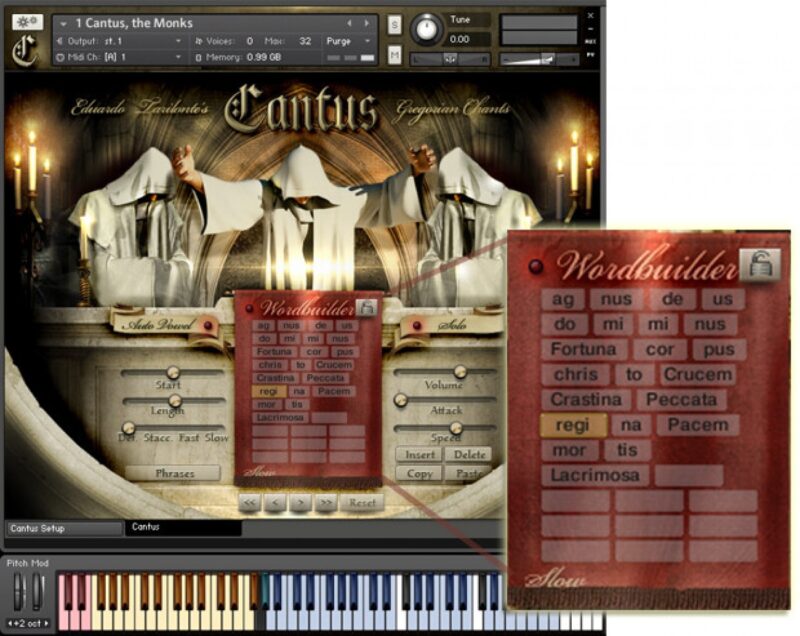 There is something truly magical, divine and spiritual about the human voice inside a huge space like a church. The rich reverb and deep echoes makes the music sound like the infinite and ethereal dimensions.
There is something truly magical, divine and spiritual about the human voice inside a huge space like a church. The rich reverb and deep echoes makes the music sound like the infinite and ethereal dimensions.
Most choir VST plugins and sample libraries focus on either the classic pad vowel sounds like: ah, mm, ooh, ee, uuh etc. or epic staccato and marcato choirs with fast, accented and energetic sounds.
But there is an ancient type of singing called Gregorian chants or Gregorian choir, where the focus is on very slow voice leading and softer dynamics, often with vowels sustained and adding melodic legato transitions while those vowels are held.
There is one such sample library for Kontakt made by Eduardo Tarilonte available on Bestservice, which can give you these celestial and spiritual Gregorian choirs, and it is called Cantus.
Check out Cantus (Gregorian Choirs) Sample Library here.
Cantus – Quick Overview
- 5 different true Gregorian style legatos (a, e, i, o, u)
- Mmmh articulation
- A powerful Phrase-Arranger with 24 words, 3 different articulations (staccato, fast and slow speeds).
- Words can be split into a total of 120 words/syllables
- Words can be combined with true legato playing while the corresponding vowel is automatically selected
- A collection of 20 Gregorian chants splitted into 400 phrases.
- 60 minutes of music
- 19 soundscapes, created from vocal samples.
- 6.000 samples (stereo, 44kHz, 24 bit), Library Size 2.8 GB.
My review of Cantus after using it in action
It stands out from all “normal” choir plugins and sample libraries, because it gives you that spiritual atmosphere.
You can easily create your own phrases from the included latin-based phrase library, and key switch during the performance to add variation.
You can also use it fairly dry, so you can dial in your own 3rd party reverb to shape the room dimension and staging, which is great since this is incredibly important for choirs and atmospheric voices.
The interface is clean and easy, and the word-builder is straightforward, even though I would have liked it a bit bigger to make it more clear on my high resolution display.
I really like that you can change the transition lengths with the MOD-wheel (CC1) so from long sustained legatos to fast transitions, instead of having to program that for each syllable.
Using the sustain pedal works great for holding the voices, and you can still choose to change the syllable or keep it legato on the vowel by playing either legato or with a gap between the keys you press on your MIDI keyboard.
You still get the standard vowels if you don’t want to mess around with latin words and syllables, but even with the classic a, e, i, u o…you get that Gregorian chanting sound.
You can add expression with a slider (mapped to a fader for example), but it seems to not change the true dynamics in the chants. Usually this would be a downside, but it does not matter as much for Gregorian chants as you mainly write inside one fairly low dynamic range anyway.
Overall Cantus has a very powerful spiritual sound, and indeed captures that medieval and ancient Gregorian atmosphere. So if you ever wanted to try composing in this style, I can highly recommend Cantus.
Using Cantus together with Mystica
There is a sister library to Cantus, literally, called Mystica which give you that Gregorian sound but with female singers instead of male monks: check out Mystica here.
Using these two products together is the perfect combination for a rich, deep and spiritual atmosphere in your music.
The Sound of Cantus – Live Demonstration
I composed a track featuring mainly Cantus, but also adding Mystica for a higher range doubled an octave above. Take a listen to the complete composition here:
